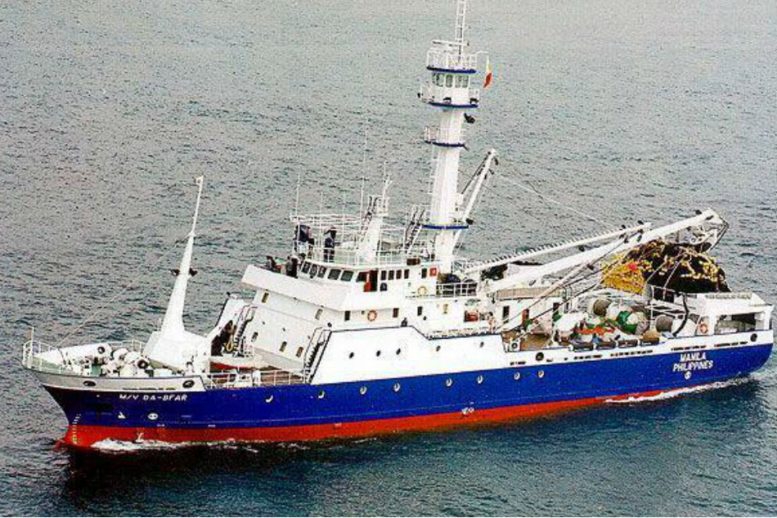Recognizing the archipelagic and maritime nature of the country, then President Fidel V Ramos issued in 1994 the National Marine Policy (NMP) to guide various stakeholders in the maritime community, especially those in government, in managing the “blue economy.” The policy contains four key areas: Politics and Jurisdiction, Area Regulation and Enforcement, Area Development and Conservation, and Maritime Security. Although bereft of a legal mandate NMP is in consonance with the national interests.
With financial assistance from the National Coast Watch Council the University of the Philippines Center for Integrative and Development Studies reviewed the NMP in 2015-2016. One of the six objectives of the review was to “assess the accomplishments, gaps, issues, challenges, and opportunities in ocean governance, resource management, and the protection of the country’s territorial integrity.” Given the rising tensions in West Philippine Sea/South China Sea (WPS/SCS) and other significant developments in the maritime domain revisiting the NMP can provide valuable insights to understand the importance of subjecting a public policy to occasional review.
On politics and jurisdiction, the new Baselines Law of 2009 (RA9522) incorporating the areas defined by PD1596 (Kalayaan Island Group) and PD1599 (EEZ) established our national identity as an archipelagic state and defined our maritime boundaries in accordance with UN Convention of the Law of the Sea. Three years later the UN recognized the country’s extended continental shelf in the Philippine/Benham Rise area thereby expanding our maritime zone by some 30,000 square kilometers. In 2016, the government formed a National Task Force West Philippine Sea to coordinate policy on South China Sea. These gains in defining the extent of territory are threatened by the brewing WPS/SCS conflict, the continuing Sulu Sultanate claim, the absence of ASEAN Code of Conduct in WPS/SCS, and the impractical local maritime zone limits that consider only physical boundaries rather than economic resource management. These are some of the challenges that need more attention, and are worthy to deal with.
On maritime area regulation and enforcement, the focus is on the protection of marine ecology. The inter-agency and convergence actions in Palawan and the community-based initiatives in other localities to protect selected marine areas contribute a lot in regulating the utilization of marine resources. In Cebu, the local government organized a system to monitor water quality and set measurement parameters for chemicals to prevent pollution. The modest gains in this area may increase once the stakeholders address the issues of fragmented implementation, enhance legal and administrative procedures and hasten the transfer of knowledge, skills and resources. Integration and coordination are central in regulating and enforcing the various issuances as regards to the use of maritime zones and resources.
On area development and conservation, the main priority is the management of the marine economy and technology to balance demands for utilization and conservation. This involves fisheries, seabed resources and ports and shipping. The concept of Integrated Coastal Zone Management has taken roots. DENR, PPA, PCG and MARINA are jointly working on abatement and control of marine pollution while other agencies continue to conduct research and assessment on marine resources to help in poverty alleviation and livelihood development. Authorities have established marine protected areas (MPAs), mandated seasonal fishing and crafted policies and strategies to mitigate the impact of climate change. BFAR and marine scientists have started to explore the fishery, aquatic and seabed resources in Philippine/Benham Rise for food, energy and income. The nautical highway initiated by PPA and MARINA some years back now links the island provinces with the major centers of the economy. MARINA’s development plans led to the country’s elevation to top 5 among world’s shipbuilding nations in terms of tonnage and in many ways improve coastal and maritime tourism. The several challenges faced by this priority area to truly harness the potential of the country’s marine economy are: weak development planning that is predominantly landward looking, poverty in coastal communities, inadequate port facilities and shipyards, mismanaged MPAs and improper valuation of damaged marine resources like reefs and corals.
On maritime security, the recent acquisition of naval, air force and coast guard platforms strengthened the country’s ability to confront low-intensity conflicts in the maritime domain. BFAR also enhanced its capability to enforce fishery laws. But these government agencies and transiting merchant ships are constrained by ill-defined sea-lanes, weak mapping of the EEZ and existence of lawless groups that prey on commercial vessels. The vastness of the sea areas enables illegal, unregulated and unreported fishing to proliferate. The number of patrol ships for maritime zone is short of the required to prevent, deter and suppress maritime violations. The protection of future marine-based energy sources will need a stronger navy, air force and coast guard.
The NMP reviewers also formulated strategies to address the gaps in the four policy areas and added a fifth: climate change and disaster risks. The country’s participation in the Framework Convention on Climate Change is a big step that is aligned with the NMP. The creation of the NDRRMC is also a welcome initiative to minimize the disastrous effect of natural and man-made calamities. The enactment of Human Security Act is another. The challenges in this area include: mangrove conversion to aquaculture ponds, storm surges, unsustainable fishing practices, contamination of food and water supplies, and disruption of transportation, communications and power lines.
The National Marine Policy is one of the few government policies that underwent a review and we congratulate the prime movers. The maritime community looks forward to the next review to see whether the Policy, with newly crafted strategies, will redound to the integrated management of the country’s blue economy for the benefit of the entire Filipino people!
